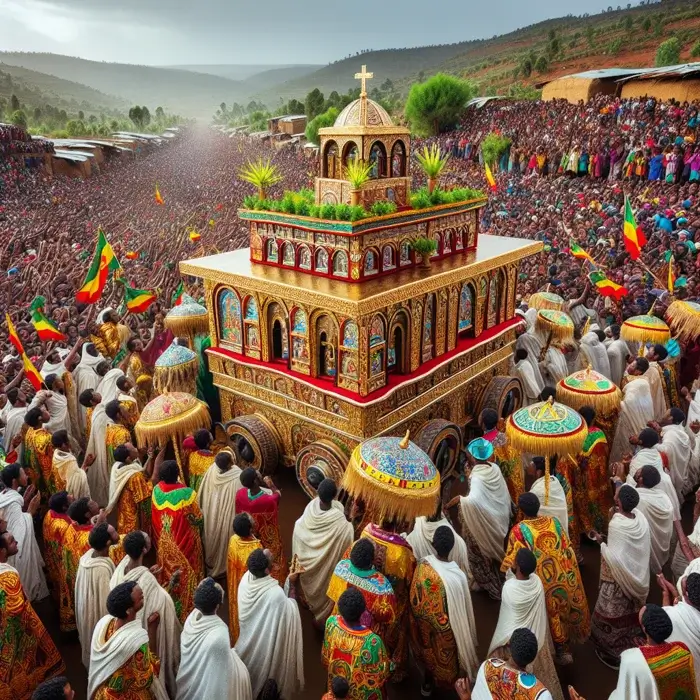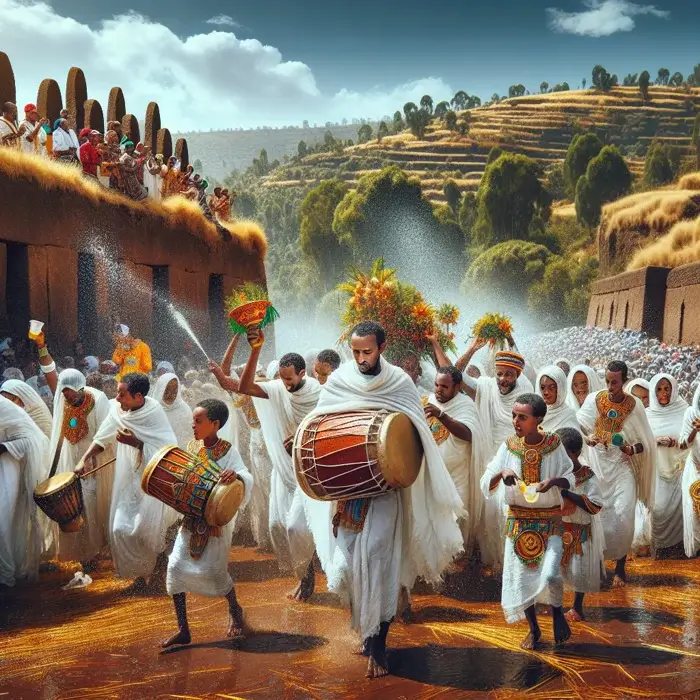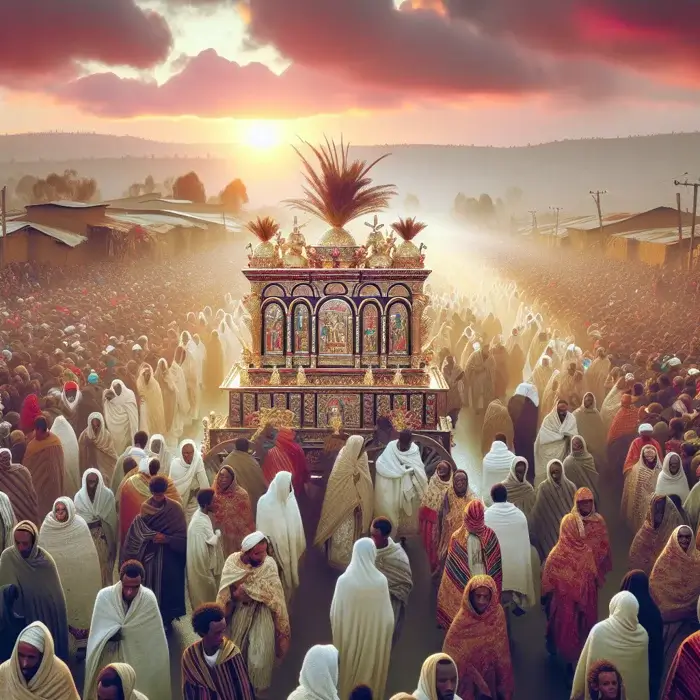Epiphany / Timkat in Ethiopia
Use our holiday API to get the exact date of Epiphany / Timkat in Ethiopia in every year.
Understanding Epiphany / Timkat in Ethiopia

In Ethiopia, an event also referred to as "Timkat" occurs annually. It celebrates the much-awaited, highly awaited, and very spiritual event everywhere in Ethiopia. It is celebrated for the baptism of Jesus Christ in the River Jordan by John the Baptist. This is a very special festival that pours heavily into the rich religious symbolism and traditional practices that show the culture of Ethiopia and Orthodox Christianity.
When Is Timkat Celebrated?
Timkat takes place on January 19, or January 20 in leap years, according to the Ethiopian calendar, which is about seven to eight years behind the Gregorian calendar. It also has a very different schedule in Ethiopia, making it be in January 18, according to the Ethiopian calendar year cycle. It lasts for some days, where the main celebrations takes place on the eve and on the very day of Timkat.
The Significance and Observation of Timkat
Timkat is a great religious symbol of spiritual renewal and purity, a great reminder to Ethiopian Orthodox Christians of their baptism into faith and the rejuvenation of mind and body. Through it, all the believers really take time out to reconsider their spiritual journeys and their community.
What Attends Timkat Celebration?

Timkat is celebrated with various religious and cultural events ranging from three days:
- Preparation Day (Ketera): The celebration begins the night before Timkat, called Ketera. The clergy and congregants gather in major churches, in this day, to carry the Tabots, replicas of the Ark of the Covenant, by priests to a nearby water body, representing the river Jordan, where Christ was baptized.
- Timkat Day: The peak celebration happens on Timkat Day. Thousands come to join in a religious procession, singing baptisms and hymns. Many priests appear in colored robes and hold some fantastic looking crosses, as the faithful sometimes join in prayer or worship ceremony. The ceremony that highlights intention and focus is the blessing of the water. It is believed to renew the faith of the participants as they immerse themselves in this water, reenacting the baptism of Jesus.
- The Third Day (St. Michael's Day): The festival ends with celebrations of St. Michael, one of the saints that hold a significant position in Ethiopian Christianity. Additional prayers and feasts with community gatherings marks this celebration.
Traditional Activities and Festivities
Timkat is not only a cultural splendid showcase, but also a religious one: public parks and spaces are laced with vibrant Ethiopian flags and decorations. With traditional music and dances, the festival resonates every inch of happiness and liveliness in the atmosphere. Most participants adorn white traditional clothing, fiesta or splurge with communal feasts including injera and doro wat (spicy chicken stew) into their meals.
Effect on Public Life: Do Banks and Schools Open Up Attendance?
Normal public and commercial activities usually grind to a halt during Timkat - banks, schools and government offices across the nation would close their doors and allow the community into celebrations along with other institutions. Museums, however, may remain open to visitors for Ethiopian history and culture explorations; though it is always advisable to check ahead.
Historical Background and Evolution

Timkat has long been an established festival in Ethiopia and intertwines closely with the Ethiopian Orthodox Church's traditions; there are historical roots that date back to the early introduction of Christianity in Ethiopia. Emperor Ezana of Aksum formally adopted Christianity in the 4th century, giving rise to several unique practices associated with Ethiopian Christians such as Timkat.
Over time, Timkat has grown and absorbed within itself nationalistic sentiments and religious sentiments. The festival stands out as one of Ethiopia's most potent evidences testifying to the nation's valor with regard to its Christian heritage and to the part it's playing in fostering unity and cultural identity.
Conclusion
A visit to the Timkat festival promises insight into the rich blend of worship, tradition, and community. This is the time in Ethiopia when people reflect inwardly, renew themselves, and celebrate. Those fortunate enough to witness Timkat will experience typical Ethiopian Christian celebrations, but beyond that, they will be privy to a subtle, rich, ethnic fabric that holds the nation together. Whatever the reason that draws you to Timkat, whether religious or cultural, it does provide a warm glimpse of Ethiopian life and spirit.